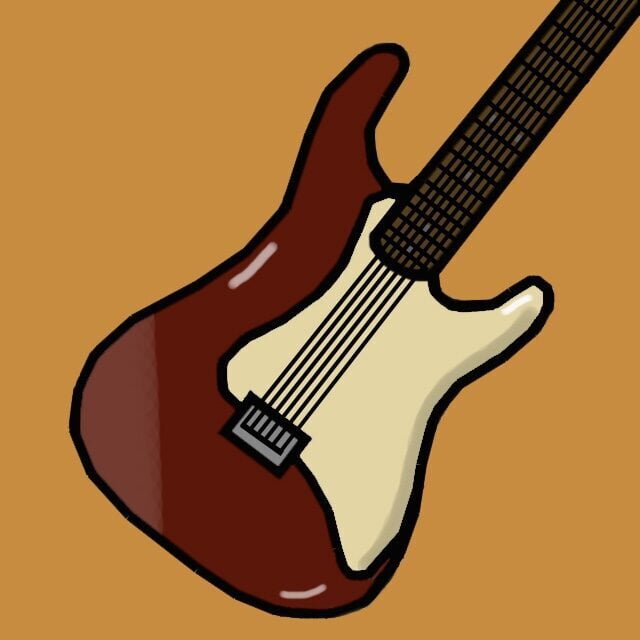The wires inside an electric guitar to help produce quality sound can stretch for miles – even the length of a university campus. The copper wire, with the diameter of a human hair, is wrapped around magnets inside the guitar via a tedious and time-consuming process.
Now, Purdue University innovators have developed a solution to cut down that process and make the finished products better for players and manufacturers.
The team created a flexible, printed circuit board that imitates the conventional wire configurations inside an electric guitar. Existing guitars can be retrofitted with this innovation. The technology also has applications for other stringed instruments.
“We came up with a new approach to the electric guitar pickup – the magnetic transducer that helps create the musical sound,” said Davin Huston, an assistant professor of practice in engineering technology in the Purdue Polytechnic Institute. “Our circuit boards can be printed in large quantities and fit inside just about any electric guitar, which simplifies the manufacturing process but keeps the sound quality and reliability.”
The other members of the Purdue innovation team include Mark French, a professor of mechanical engineering technology in Purdue Polytechnic, and Kathryn Smith, a former graduate student in Huston’s lab.
The Purdue team’s circuit board works in the same general way as a conventional electric guitar pickup – string vibrations cause the electromagnetic field to oscillate and induce a voltage in the stationary coil. The electric signal generated is then carried to a power amplifier and speaker.
“With typical pickups, the wire coils often produce undesired feedback and need to be potted with wax or a polymer,” French said. “Our circuit board provides an alternative that is easier to produce with manufactured consistency.”
The team worked with the Purdue Research Foundation Office of Technology Commercialization to patent the technology. A U.S. patent has been granted on this technology.
The creators are looking for partners to continue developing their technology and license it. For more information, contact D.H.R. Sarma of OTC at dhrsarma@prf.org and reference track code 2013-HUST-66596.
About Purdue Research Foundation Office of Technology Commercialization
The Purdue Research Foundation Office of Technology Commercialization operates one of the most comprehensive technology transfer programs among leading research universities in the U.S. Services provided by this office support the economic development initiatives of Purdue University and benefit the university’s academic activities through commercializing, licensing and protecting Purdue intellectual property. The office recently moved into the Convergence Center for Innovation and Collaboration in Discovery Park District, adjacent to the Purdue campus. In fiscal year 2020, the office reported 148 deals finalized with 225 technologies signed, 408 disclosures received and 180 issued U.S. patents. The office is managed by the Purdue Research Foundation, which received the 2019 Innovation and Economic Prosperity Universities Award for Place from the Association of Public and Land-grant Universities. In 2020, IPWatchdog Institute ranked Purdue third nationally in startup creation and in the top 20 for patents. The Purdue Research Foundation is a private, nonprofit foundation created to advance the mission of Purdue University. Contact otcip@prf.org for more information.
About Purdue University
Purdue University is a top public research institution developing practical solutions to today’s toughest challenges. Ranked the No. 6 Most Innovative University in the United States by U.S. News & World Report, Purdue delivers world-changing research and out-of-this-world discovery. Committed to hands-on and online, real-world learning, Purdue offers a transformative education to all. Committed to affordability and accessibility, Purdue has frozen tuition and most fees at 2012-13 levels, enabling more students than ever to graduate debt-free. See how Purdue never stops in the persistent pursuit of the next giant leap at purdue.edu.






